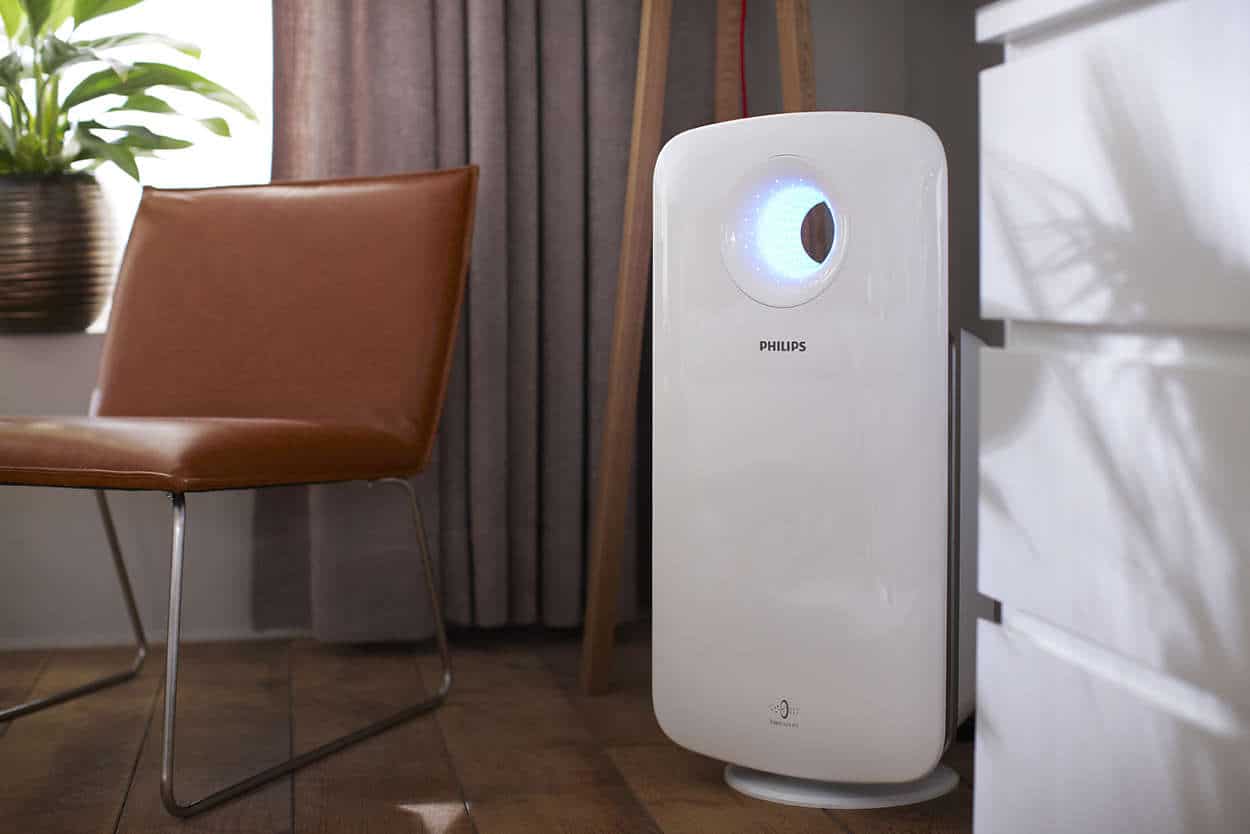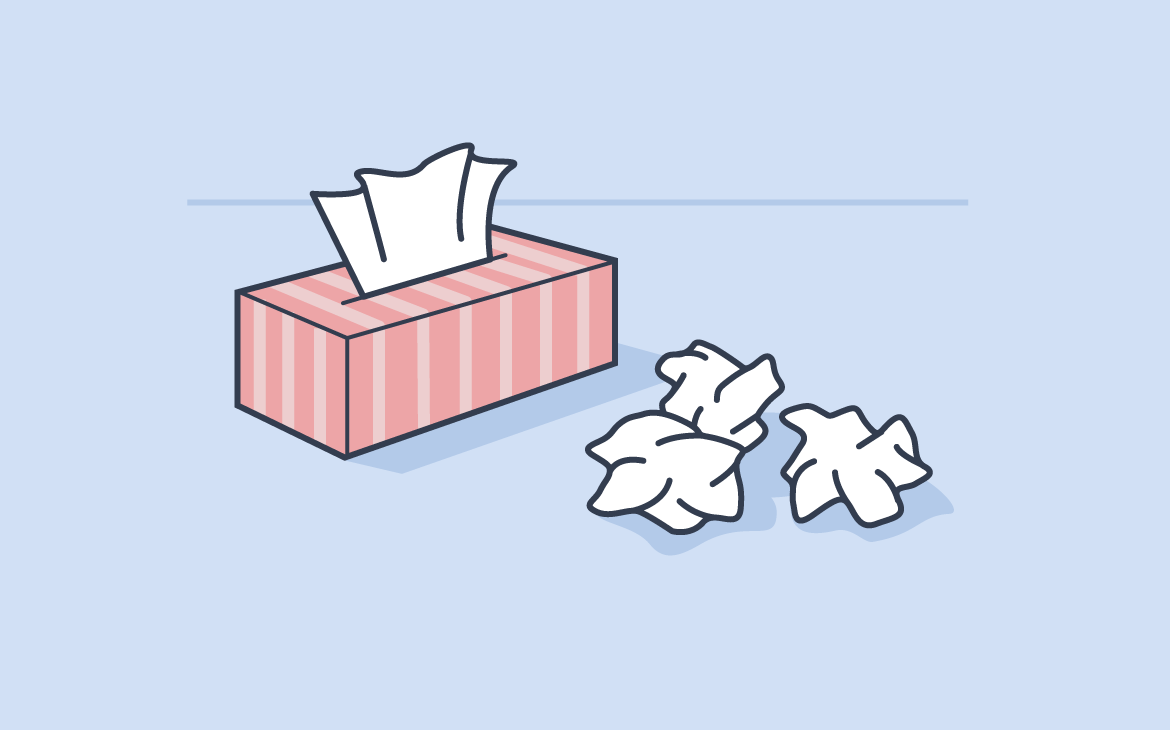Most people wait all winter for spring to finally arrive. Unless, of course, you have seasonal allergies.
It can be tough to enjoy the pretty flowers, golden sunshine, and warmer temperatures when you’re blowing your nose every 30 seconds and dealing with puffy, irritated eyes.
Plus, seasonal allergies and sleep don’t exactly go hand in hand. So in addition to feeling sick, you’re also likely exhausted. Fun, right?
To make matters worse, many medications aren’t all that helpful. Sure, they’ll stop you from turning into a human faucet—but they often come with the price of feeling like you’ve spent a week in the desert without any water or with disorienting drowsiness.
6 Natural Ways to Ease Symptoms of Seasonal Allergies
So how can you cope with the sniffling, sneezing, and all around unpleasantness of allergy season? So glad you asked. Here are five science-backed, natural allergy remedies that can help minimize your symptoms—so you can have fun this spring instead of feeling like a zombie.
Minimize Your Allergen Exposure
Doing so can go a long way towards keeping your symptoms from flaring up in the first place.
If you usually work out in the morning, consider switching your workout to later in the day. Pollen counts are highest in the AM, and despite what you might think, exercising in the evening won’t wreck your sleep.

- Take your shoes off outside, and change your clothes as soon as you come in the house.
- Stop allergens from floating indoors by keeping the windows shut.
- Wash your sheets in hot water at least once a week to get rid of allergen buildup. If you have indoor/outdoor pets, it might be best to give them beds of their own during allergy season.
- Shower at night to wash allergens off of your skin and hair before you go to sleep. (Bonus: A hot shower or bath can help you fall asleep faster.)
- Consider investing in an air purifier to keep your indoor air as clean as possible.
Eat the Right Foods
Good news: Certain picks can go a long way towards making your symptoms more tolerable.
Apples and garlic, for instance, contain antioxidants that appear to suppress the production of histamine. Verified Source National Library of Medicine (NIH) World’s largest medical library, making biomedical data and information more accessible. View source Nuts and fish contain fatty acids that help lower inflammation, which may be why research shows Verified Source National Library of Medicine (NIH) World’s largest medical library, making biomedical data and information more accessible. View source that those who follow a Mediterranean-style diet are less likely to have allergy symptoms.
Fermented foods Verified Source National Library of Medicine (NIH) World’s largest medical library, making biomedical data and information more accessible. View source help, too. Things like plain yogurt, sauerkraut, miso, and kimchi are packed with beneficial probiotics that are thought to promote a healthy immune system and reduce the body’s response to allergens.Keep Your Stress Levels Low
Constantly sniffling, itching, and sneezing is pretty unpleasant, so it’s no surprise that allergy sufferers tend to report higher levels of perceived stress. Verified Source National Library of Medicine (NIH) World’s largest medical library, making biomedical data and information more accessible. View source
But all that negative energy might actually make your allergies worse. Other research shows Verified Source American Psychological Association (APA) Collaborative organization for psychologists across the country. View source that high levels of chronic stress can negatively impact your immune system, which only serves to exacerbate your seasonal symptoms.
So prioritize keeping the calm in your life. Whether it’s journaling or even taking a bubble bath before bed, any activity that lets you unwind can help keep stress at bay, possibly playing a role in minimizing your allergy flare-ups.
Research shows that high levels of chronic stress can negatively impact your immune system, which only serves to exacerbate your seasonal symptoms.
Tame Your Hair
It’s an unconventional tip, but one that makes sense as you think about it. See, environmental allergens like pollen, dust, pet dander, and mold spores can get trapped in your hair. By keeping your hair short or trimmed in areas, you reduce the surface area where these allergens can accumulate.
This means there are fewer places for allergens to cling to, making it easier to remove them through regular hygiene practices like washing your face or using a nasal rinse.
Experiment with Acupuncture
Acupuncture alone won’t rid you of allergies. But when incorporated into your treatment plan, the evidence suggests that it can make your symptoms more tolerable and provide some relief.
How so? Admittedly, experts are still trying to figure that part out. But if it helps, it helps, right? If you’re interested in adding acupuncture to your allergy treatment plan, ask your doctor about how to get started.

Consider Immunotherapy
Immunotherapy Verified Source National Library of Medicine (NIH) World’s largest medical library, making biomedical data and information more accessible. View source works sort of like a vaccine in slow motion. By taking oral drops or injections, you expose your immune system to tiny amounts of the thing that you’re allergic to.Over time, that teaches your immune system that the allergens aren’t foreign invaders—so it doesn’t need to react with an allergic response.
Currently, immunotherapy treatments are available for grass and ragweed allergies. They require a long-term commitment—usually a few years—and you’ll need to consult with your doctor to determine if it’s a match for your allergy symptoms.
But the results just might be worth it: According to experts, up to 90% of patients see a significant reduction in their allergy symptoms—and the benefits can start to kick in after just a couple of months.
Now that’s nothing to sneeze at.
About the author
Marygrace Taylor is an award-winning health writer for Amerisleep. Her commitment to sleep health is evident in her ability to consistently prioritize eight hours of sleep each night. Her in-depth interviews with industry experts, such as Ken Ceder on "Why Light is Essential for Great Sleep and Optimum Health," highlight her dedication to delivering valuable insights. Marygrace's work has been featured in reputable publications like Business Insider, Glamour, Refinery29, Metro UK, and Hunker, further solidifying her expertise in the field.
View all posts





